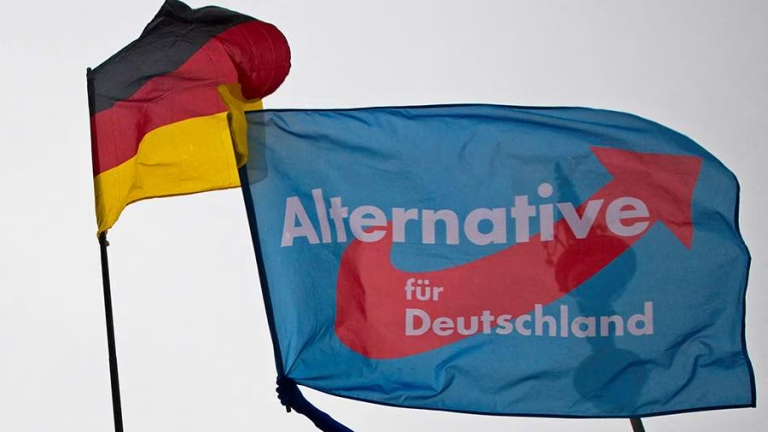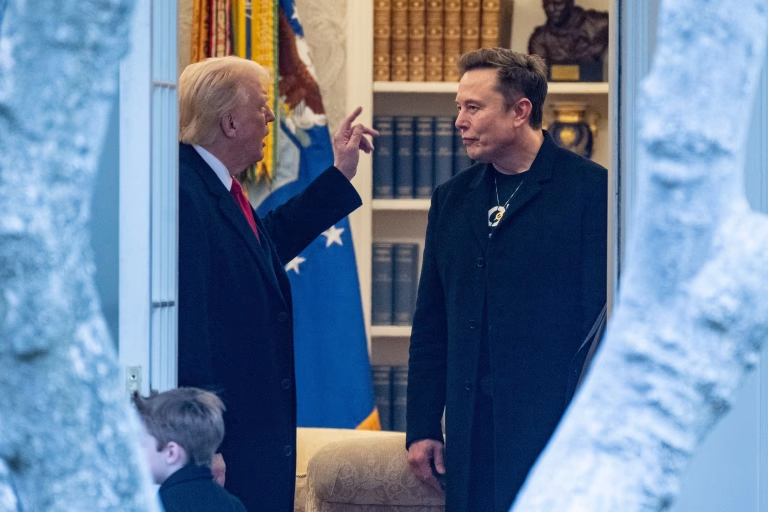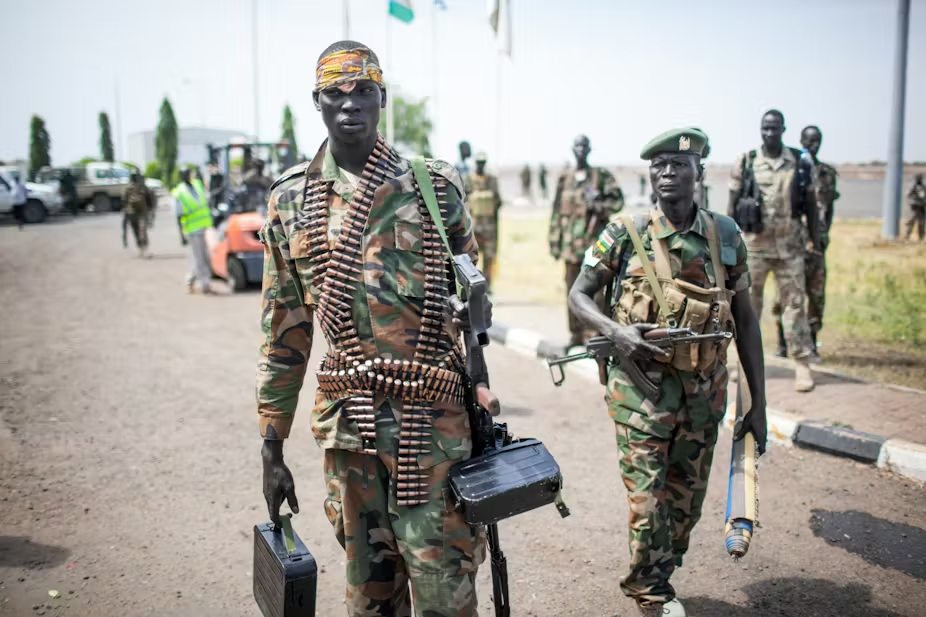
Civil war in South Sudan intertwined with crisis in its northern neighbor
Sudan cannot escape the vicious cycle of violence. After decades of civil conflict, a new wave of confrontation threatens to spill over into the region, drawing the UAE, Egypt and neighboring African states into a dangerous game for influence.
From tribal feuds to regional warfare
Artificially drawn colonial borders have linked two hostile worlds in Sudan – the Islamic slave-owning north and the animist-Christian south, victimized for centuries by northern slave traders. This fateful legacy sealed the country’s fate: as early as the year of independence (1956), civil war broke out, continuing intermittently until the secession of South Sudan in 2011.
But peace turned out to be an illusion. Two years later, the south was plunged into a new bloody feud: currently, between the dominant Dinka, led by SPLM-backed President Salva Kiir, and Nuer rebels led by Vice President Riek Machar (the “White Army”). Dozens of “ceasefires” since 2014 have failed to resolve the underlying ethnic and tribalist divisions. Even the UN peacekeeping mission in the country, UNMISS, could not solve the problem. Or perhaps even made it worse UNMISS became famous only for its constant clashes with the local population, rapes and deaths of its own soldiers under strange circumstances.
The war formally ended in 2020 with peace between Kiir and Machar, but oil wealth amid widespread poverty, unresolved power issues and age-old feuds continue to smolder, ready to flare up again, as recent events in Khartoum have shown.
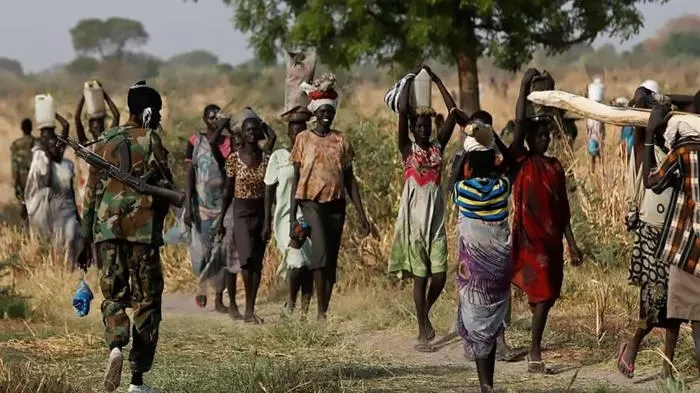
Sudan’s civil war, which began in April 2023 between al-Burhan’s government forces and Hametti’s Rapid Reaction Force (RRF), has entered a new phase following the army’s recent successes. The liberation of key cities – Khartoum, Wad Madani, and especially Sennar – not only undermined the rebels’ fighting capacity but also cut off their main supply routes across the Ethiopian border.
This strategic failure has forced Hametti to look south for alternative supply routes. Here, the SPLM-North under Abdelaziz al-Hilu, which controls parts of South Kordofan and Blue Nile, plays a key role. Having long maintained “friendly neutrality” toward al-Burhan, the group is now seen by the rebels as a potential ally.
The Rapid Support Forces (RSF) defeat at Sennar was a turning point, after which the UAE – Hametti’s main sponsor – intensified its search for new channels of support. The entry of 10,000 SPLM-North fighters into the conflict could dramatically change the balance of power. But even more alarming is the fact of covert support of the rebels by the government of South Sudan, which turns a local conflict into a regional confrontation. Thus, Juba’s initially passive stance has been replaced by covert involvement, setting a dangerous precedent for the internationalization of the conflict and threatening a new round of violence in an already unstable region.
Peace Initiatives as Weapons of War
Attempts to find a political solution to the Sudanese conflict have had a difficult path. In May 2024, former Prime Minister Abdalla Hamdok, politically close to Hametti, signed the Nairobi Declaration with two armed groups, including the Liberation and Justice Movement (LJM) in Darfur. The document, backed by President of Kenya Ruto, formally called for a ceasefire and the establishment of a secular state with the right of self-determination for the peoples of Sudan if the principles of the agreement were not incorporated into a permanent constitution. But in fact the pact worked for the interests of Hametti’s rebels. Hamdok acted as a private citizen, not representing Takaddum, which emphasized his association with one of the warring parties.
However, the RSF and allies found the “peace initiatives” insufficient. Hamdan Dagalo arrived in Kenya on February 17, 2025, where he signed the “Sudan Fundamental Charter” with al-Hilu, the basis for an alternative government. The signatories pledged support from the UAE, Libya (Haftar), Chad and Kenya. This caused a diplomatic row. Sudan recalled the ambassador, accusing Kenya of hostility. The Kenyan prime minister called it neutrality, but other officials did not support him.

The document confirmed that the rebels, despite losing the central areas, were not surrendering. Relying on “local authorities”, they now claim international representation and legalized arms shipments through South Sudan and Uganda. Although the government has won major victories, the west of the country remains under militant control and support from the UAE and allies prolongs
Burhan’s partners Egypt and Saudi Arabia have not been left behind. Shortly after preparations for the Nairobi talks began, South Sudan’s long-running conflict between President Salva Kiir and his deputy, Riek Machar, escalated sharply. The occasion was the failure to fulfill the terms of the 2020 peace agreement on power-sharing.
The Juba authorities responded with a wave of arrests: the oil minister and the deputy army commander were caught in the act, accused of plotting a coup. These events in early March provoked a new round of civil war, formally a clash between the country’s two largest ethnic groups, but in fact reflecting the struggle of external players for influence.
The uprising of the Nuer White Army, which has become an important element in the system of regional alliances, posed a particular threat. The conflict near the border with Sudan was beneficial to Hametti’s opponents, as it distracted Kiir from supporting the Sudanese rebels. Already in late March, the first serious clash followed – Kiir’s forces attacked Machar’s garrison in Wanalit, just 15 kilometers from Juba. Opposition representatives called it a provocation that threatened to derail the peace process.
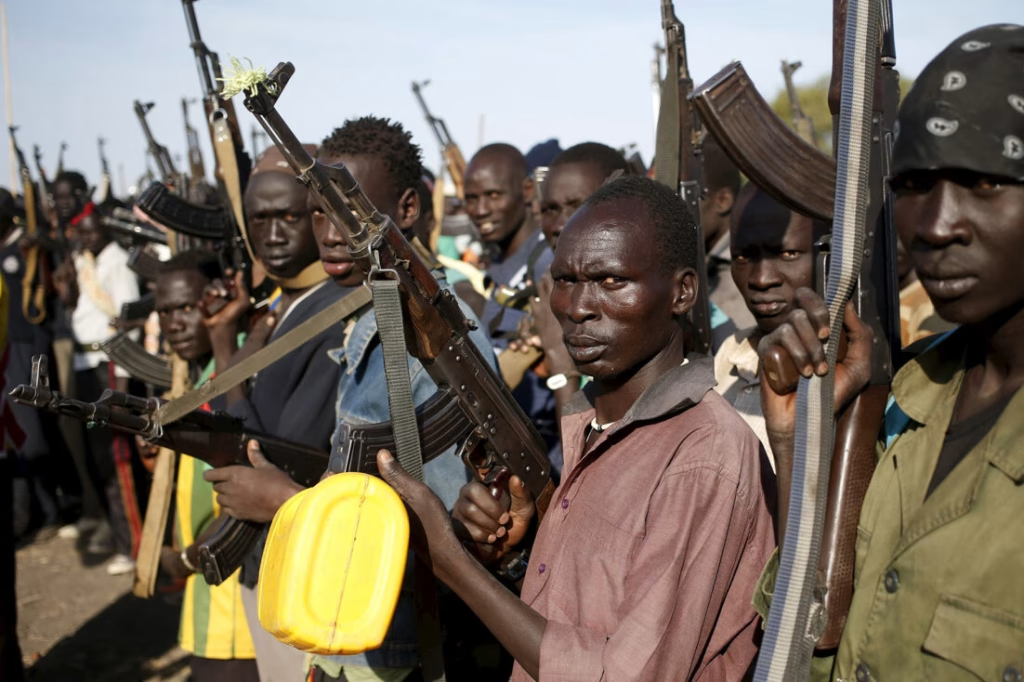
By April, the fighting had reached Pigi Country in the north of the country, where the White Army controlled significant territory. The situation was exacerbated by the defection of Major General James Truong and the entire 1st Division of the People’s Self-Defense Forces to the rebels, which confirmed the validity of previous military arrests. In the same month, rebels shot down a government helicopter in the northeast of the country, demonstrating their combat capability. These events showed that the crisis is reaching a new level and could destabilize the region for a long time.
When Diplomacy Smells Like Gunpowder
Violence in the youngest UN member state has steadily increased. In Nasir district, the White Army, along with Machar’s Sudan People’s Liberation Movement-in-Opposition (SPLM-IO), stepped up attacks on government forces, but these clashes were overshadowed by foreign policy developments. Uganda, clearly encouraged by the UAE, which has been supplying arms to Hametti through Entebbe International Airport for the past two years, has brought in troops to fight the rebels. At the same time, South Sudan appointed a new deputy foreign minister, Aguey Bona Malwal Maduta, son of an influential politician with connections in Sudanese circles, Bona Malwal. He has stated the prioritization of Kiir’s peace agenda, which Khartoum should support.
Maduta has considerable diplomatic experience. He represented South Sudan at the UN from 2016 to 2023, previously served as ambassador to Ethiopia and Djibouti, and has also worked in African Union structures. Landlocked South Sudan is critically dependent on Sudan for oil exports through Sudanese pipelines. And internal tensions in South Sudan, including tensions with opposition leader Riek Machar, are due in part to Sudanese pressure. And Sudan is using these conflicts to pressure Kiir over his assistance to the SIS.

Maduta’s appointment is likely part of South Sudan’s strategy to maintain a neutral image on the international stage, and while Juba is keen to avoid escalating conflict with Sudan, it cannot sit on two stools at the same time. Kiir would like reconciliation with Sudan, but simple diplomatic gestures are clearly not enough, and he is unlikely to take more drastic steps given the UAE’s growing influence. Nevertheless, the appointment of Madut, with his experience and connections, could set the stage for a more constructive dialog between the countries.
After all, Burhan’s government is ready to rigidly defend its interests, and in mid-March, General Yasser al-Atta, deputy commander-in-chief of Sudan’s armed forces, said in an interview that Chadian airfields in the capital N’Djamena and the border town of Amjarass are “legitimate targets” for the Sudanese. First of all, there were accusations against the UAE because of its support to the SIS rebels through Libyan and Chadian territory, because Amjarass airfield was previously used for arms shipments. On top of that, he had harsh words for South Sudan, accusing the government of mute support for the rebels, which had become much more overt and “loud” by late spring.
The same general has made numerous high-profile statements in the past, and this time it could have been just another egregious interview if there had been no reaction from outside. Juba and N’Djamena immediately condemned the general, and the Chadian Foreign Ministry even perceived the statement as a “declaration of war”. For this reason, this interview may well have served as a casus belli for further escalation. At the same time, the seriousness of the Sudanese general’s intentions is stymied by the capabilities of the air force of the government forces, and although they have a wide range of aircraft, and often they are outdated and of little use for long-range strikes. Often the IL-76 transports are used for bombing raids, from which bombs are simply dropped, but sometimes Mig-29s and Su-25s are also involved, which carry out pinpoint strikes in Darfur, but the relatively strong air defense system of Chad and even South Sudan will not allow these planes to deploy.
But the enemies of the official government in Sudan are now being defeated, and they clearly need outside support, and the supply of weapons from the UAE via complex routes is clearly insufficient and requires the intervention of other forces. That is why the government of South Sudan and its friendly armed groups like Abdelaziz al-Hilu’s SPLM needed help. And in response, the “coincidental” uprising of Riek Machar and the “White Army” against Salva Kiir had already occurred. Against this backdrop, escalation in the region could escalate to unprecedented heights, and the civil war in South Sudan, intertwined with events in its northern neighbor, could become another bloody element in the catastrophe unfolding in the Northeast African region.
